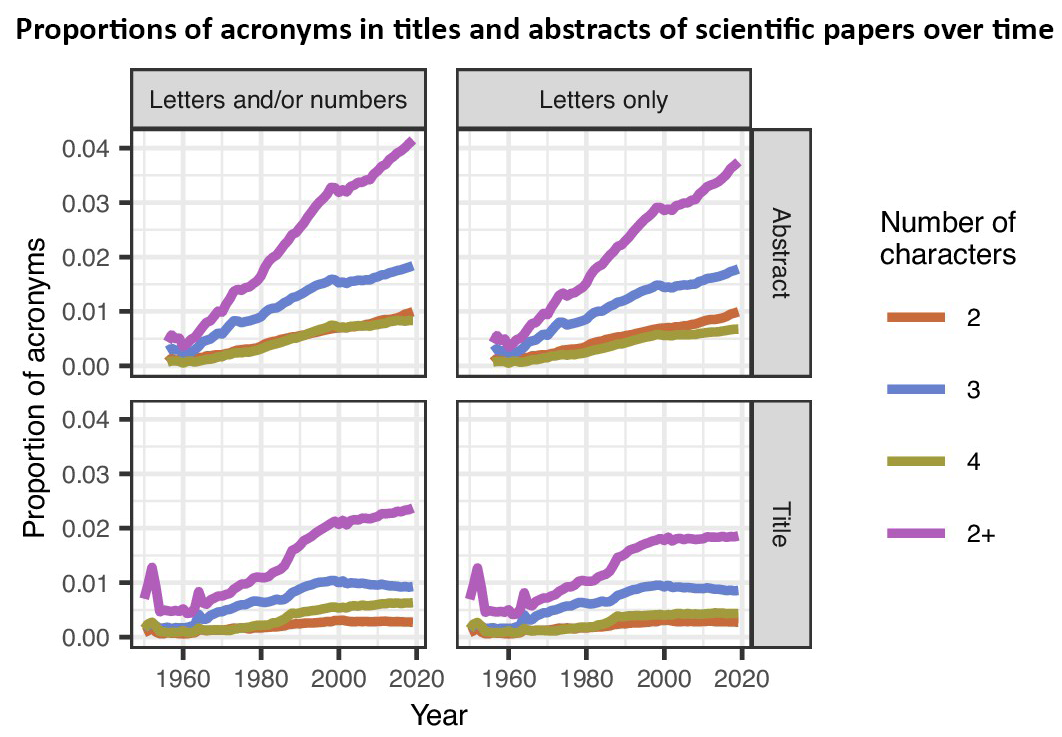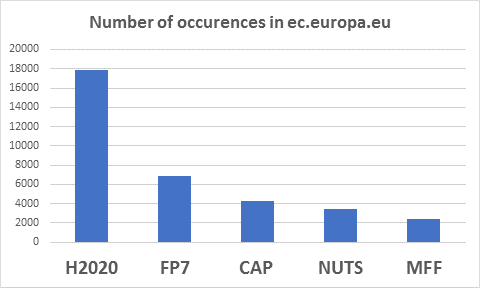
The use of acronyms in scientific articles has steadily increased over the last 60 years, according to a study by Adrian Barnett of Queensland University of Technology and Zoe Doubleday of the University of South Australia.
As the graphs show, the number of acronyms in abstracts of scientific papers (purple line) has increased over time, for both acronyms that are letters and/or numbers (top left) or just letters (top right). It is also more common to find acronyms in abstracts than in titles, the study finds (bottom left and right).
The researchers analysed more than 24 million article titles and 18 million article abstracts published between 1950 and 2019. The data show there was at least one acronym in 19 per cent of the titles and 73 per cent of abstracts. However, not that many acronyms stick, with only 0.2 per cent being used regularly and 79 per cent appearing fewer than 10 times.
The researchers argue that the content of scientific papers is becoming ever more specialised and complex, leading to a “knowledge-ignorance paradox” where the volume of information has sky-rocketed but knowledge on how to put research into practice, has not.
Acronyms increase the difficulty of understanding scientific papers and can lead to potential ambiguities and misunderstandings. Most of new acronyms in scientific papers are not re-used after their first appearance, making them extremely specific to a certain research field and hard to recognise, or even irrelevant, outside that field.






 A unique international forum for public research organisations and companies to connect their external engagement with strategic interests around their R&D system.
A unique international forum for public research organisations and companies to connect their external engagement with strategic interests around their R&D system.